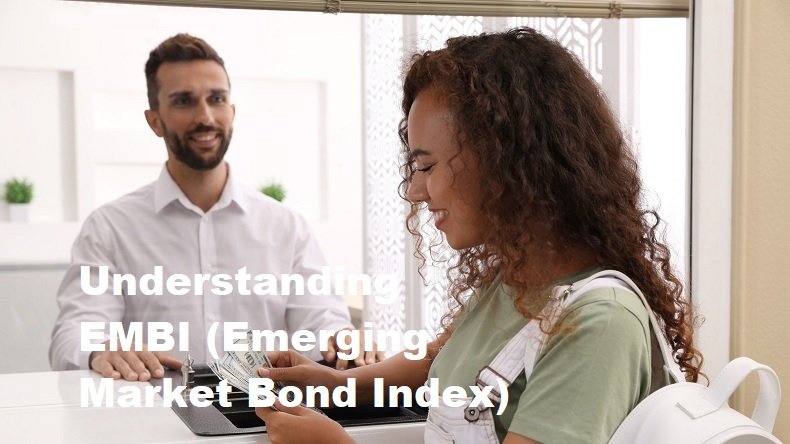EMBI (Emerging Markets Bond Index) is an index created to measure the performance of bond markets in developing countries. This index includes various debt instruments issued by governments, private business entities and financial institutions in countries with rapidly growing economies. In this context, EMBI can help investors to understand the trends and risks associated with investing in emerging market bond markets and compare the performance of various financial instruments in their portfolios. EMBI includes several important criteria for assessing a financial instrument in emerging market bond markets. First, the instrument must be issued by the government or private business entity of a developing country. Second, the instrument must be actively traded on the secondary market and have sufficiently high liquidity. Third, the instrument must have a credit rating from an international rating agency such as Standard & Poor’s, Moody’s, or Fitch Ratings.
EMBI’s history began in the 1990s when J.P. Morgan launched the Emerging Markets Bond Index Plus (EMBI+) index as a tool for investors to measure the performance of bond markets in developing countries. This initiative emerged in line with increasing investor interest in financial instruments in fast-growing countries. As time goes by, EMBI continues to be developed to improve the quality of the information and data provided. Various modifications and sub-indices were then created to provide a more comprehensive picture of emerging market bond markets. Index development includes the addition of debt instruments from various developing countries, adjustments to calculation methods, and updates to liquidity criteria. This makes EMBI an increasingly relevant tool for international investors who wish to evaluate and exploit investment opportunities in emerging market bond markets. With EMBI, investors can understand price fluctuations and risks of various financial instruments, and facilitate the investment decision making process. As a consequence, EMBI helps promote market transparency, accelerate global investment flows, and provide opportunities for developing countries to access financing more easily and cheaply to support their economic growth.
EMBI components
The EMBI Index or Emerging Market Bond Index is an index that measures the performance of bonds issued by emerging market countries. Emerging markets themselves can be defined as countries that have rapid economic growth and are in the process of development, but have not yet reached the level of stability and maturity of developed countries. Some examples of countries that fall into the Emerging Market category are Brazil, Russia, India, China (known as BRIC), as well as Indonesia, Turkey and South Africa. Countries in the emerging market category generally have faster economic growth compared to developed countries. This makes them an attractive market for investors looking for new investment opportunities. Likewise in the bond market, the EMBI index provides an overview of investment opportunities in the bond market of emerging market countries.
The EMBI Index measures the performance of various types of bonds issued by emerging market countries. There are several main types of bonds measured in this index, namely (a) Sovereign Bonds, which are bonds issued by the country’s government; (b) Quasi-Sovereign Bonds, namely bonds issued by companies or non-central government institutions; and (c) Corporate Bonds, namely bonds from private or public companies operating in emerging market countries. The EMBI Index is an important tool for investors to measure risks and opportunities in investing in bonds issued by emerging market countries. By monitoring changes in these indices, investors can gain a better understanding of market conditions and investment prospects in bonds from these countries. In addition, investors can also use this index as a basis for constructing their investment portfolio in emerging market bond markets.
Factors influencing EMBI
One of the factors that influences EMBI (Emerging Market Bond Index) is changes in global interest rates. Global interest rates have a significant impact on capital flows and investment in emerging markets. When global interest rates are low, investors are more likely to seek higher-yielding investment opportunities in emerging markets, thereby increasing demand for those countries’ bonds and raising EMBIs. Conversely, if global interest rates increase, investors will tend to look for safer assets, such as developed country government bonds, resulting in a decrease in EMBI.
The economic performance of emerging market countries is also a major factor influencing EMBI. Strong economic growth, controlled inflation, and political stability of a country can attract foreign investment and increase the value of government bonds on the international market. Investors see economic performance as an indicator of the government’s sustainability and stability in fulfilling its interest payment obligations. If a country’s economic growth slows or faces problems such as a budget deficit or high inflation, this can reduce investor confidence and cause a decrease in EMBI.
The level of geopolitical risk also has a real impact on EMBI. International conflict, political instability, or policies that are detrimental to foreign investors can reduce investor confidence in a country’s bond market. This geopolitical risk can reduce investor interest in bonds from emerging market countries and result in the withdrawal of funds, which ultimately reduces EMBI. For example, the trade war between the United States and China has created uncertainty in global markets and impacted EMBI.
Currency exchange rate fluctuations also affect EMBI. Most developing country bonds are traded in foreign currencies such as US dollars, so exposure to currency exchange rate fluctuations is a factor that investors must consider. When the exchange rate of a developing country’s currency depreciates, the value of assets traded in that currency (such as bonds) will also fall. Currency depreciation can cause losses for investors who expect higher returns from emerging market bonds, and ultimately, lower EMBIs. Conversely, currency appreciation can increase the value of such assets and support an increase in EMBI. Therefore, fluctuations in currency exchange rates are an important concern for investors when making investment decisions in the bond markets of emerging market countries.
Benefits and uses of EMBI
One of the main benefits of EMBI is that it helps investors assess investment risks in emerging markets. This index covers various aspects, from changes in interest rates, political conditions, to economic stability in various developing countries. Apart from that, EMBI is also a benchmark for market players in measuring their investment performance. In this case, investors can use this index as a reference to compare the performance of their portfolio with the market in general. For example, if the performance of your bond portfolio exceeds the performance of EMBI, this means that your bond investment strategy has succeeded in generating better profits compared to the market average.
Using EMBI is also useful for informing economic policy in emerging market countries. This index provides a general picture of the extent to which a country is able to attract the attention of investors and manage its external financing. Therefore, policy makers can use information from EMBI as a reference for determining strategies in facing economic challenges when dealing with international capital flows. In conclusion, EMBI is a very useful tool for both investors and economic policy makers. By providing accurate and relevant information, this index helps assess investment risk in emerging markets, serves as a performance benchmark for market players, and informs economic policy in developing countries. Along with the growth and transformation of the global economy, the importance of EMBI as an analytical tool is increasing, so it needs to be understood by market players and economic decision makers.








